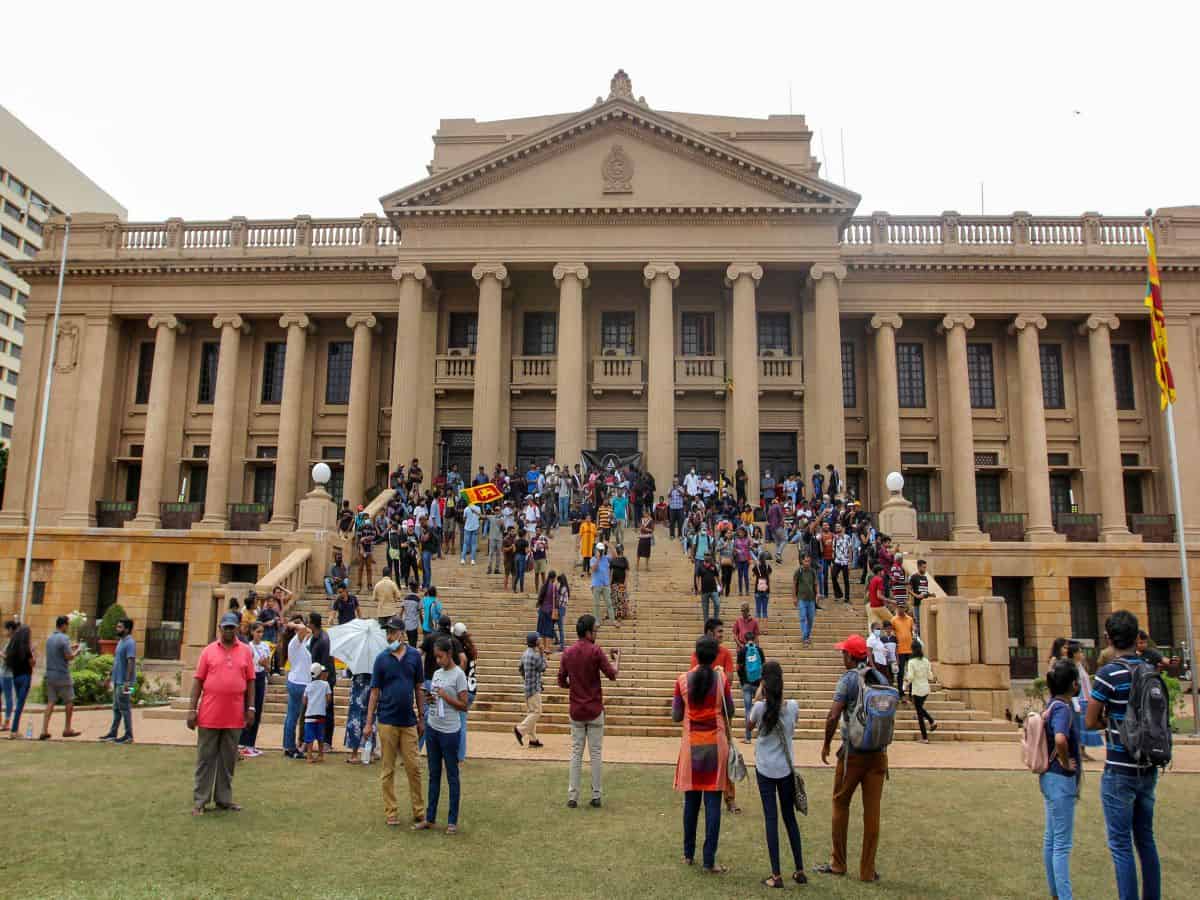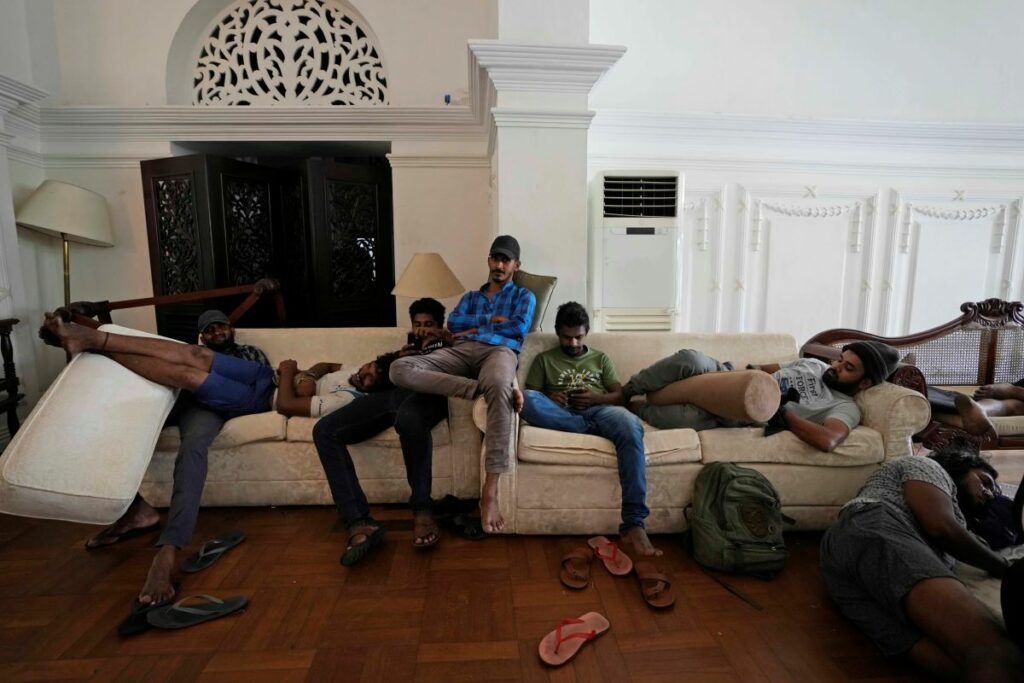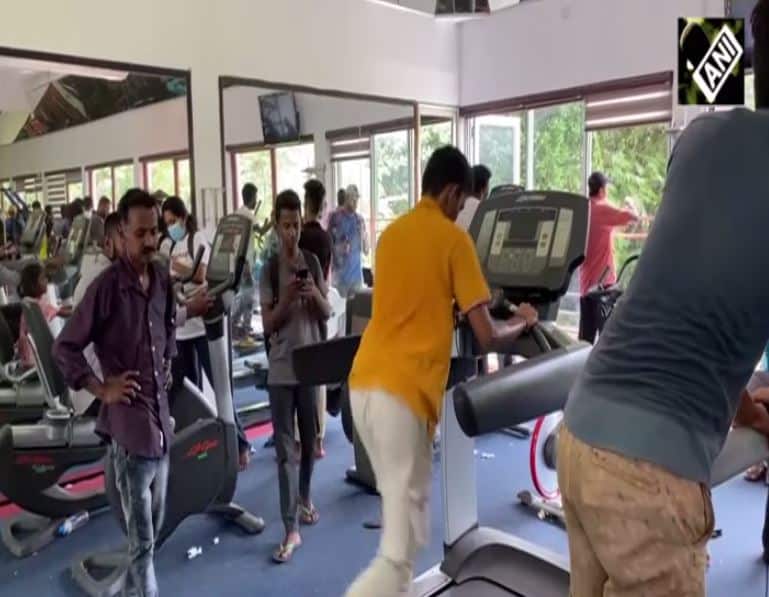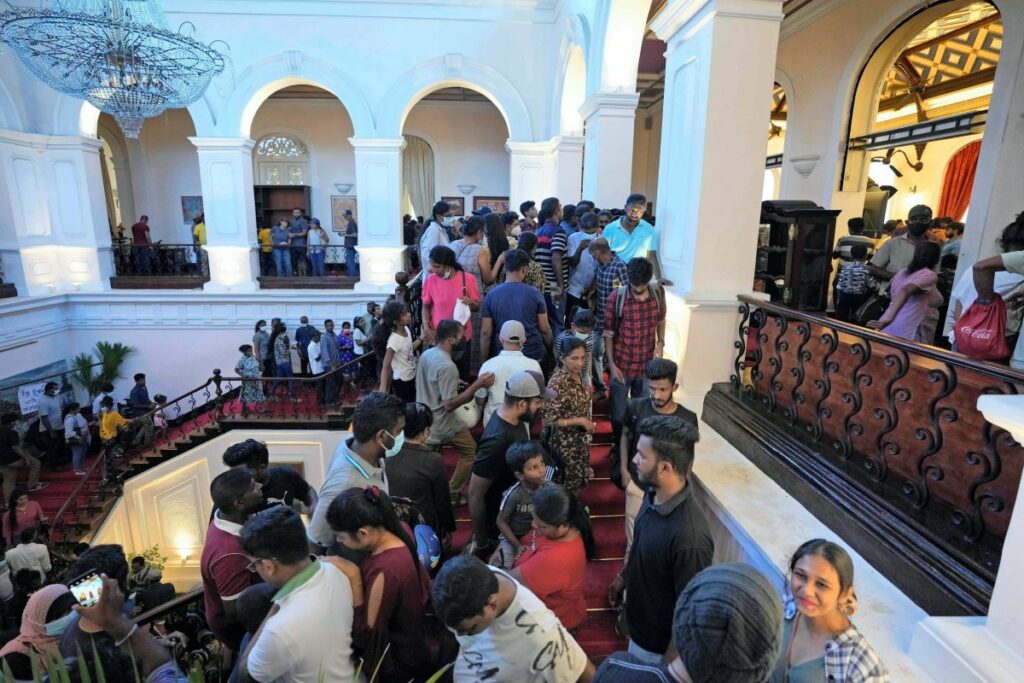
Colombo: A few activists played a key role in bringing down Sri Lankan government within weeks. Their initial meetings at a seaside in Colombo turned into massive protests later.
As per Reuters, it was June when the activists including a Catholic priest, a digital strategist, and a popular playwright started meeting at seaside tented camps. Their intention was to revive the flagging protest movement.
Earlier, President Gotabaya Rajapaksa’s elder brother Mahinda Rajapaksa had stepped down from Prime Minister’s post due to the protest against lengthy power cuts and surge in prices.
Seeing the people’s success in forcing Mahinda to resign, the activists decided to review ‘Aragalaya’ which is ‘Struggle’ in the Sinhala language.
Anti-govt protesters storm Sri Lankan President’s house
They selected July 9 as the date to unseat the President of Sri Lanka. The protest became successful as everyone including political parties, labour unions, and student groups.
In order to unseat the President, they conducted a door-to-door campaign to bring people on the streets.


On July 9, protesters stormed the President’s House in Colombo braving several police and military barricades and tear gas shells. Since early Saturday, people from all over the country started pouring into Colombo in trains and buses, chanting slogans eGota go home’ and eGota a mad man’.
Security forces fired teargas and water cannons to disperse the protesters but later withdrew and resorted to firing in the air.


Rajapaksa signs resignation letter
Today, Sri Lankan President Gotabaya Rajapaksa signed his resignation letter dated July 13 which will be handed over to the speaker of Parliament to make a public announcement on Wednesday.
Prime Minister Ranil Wickremesinghe on Wednesday will be sworn in as the President for a temporary period till a new President is elected by Parliament on July 20.
Island nation’s economy
The island nation of 22 million people has witnessed its foreign exchange reserves shrink due to economic mismanagement and the impact of the Covid-19 pandemic.
As a result, it has struggled to pay for imports of essential goods, including fuel, food and medicine.
In May, it defaulted on its debts for the first time in its history after a 30-day grace period to come up with $78 million of unpaid debt interest payments expired.



